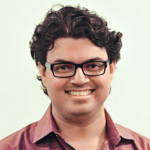November 4, 2008 changed my life. It showed me that someone like me, born from two worlds, with two identities, divergent from “traditional” America, could become the most powerful person in the world. It showed me that an upstart politician with little experience can become president of the United States: It showed me the power of a good campaign. That night, I began rearranging my high school course schedule. I shifted units from the “hard” sciences to the “soft” sciences, from chemistry to government — a prologue to be fulfilled at Stanford.
But that night didn’t just change my life; it changed millions of Americans’ too. President Obama’s flagship legislation has ensured healthcare coverage for more than 11 million people. It has helped more Americans than any healthcare law since Lyndon Johnson’s Great Society legislation 50 years ago.
With this preamble, it should surprise no one that one of the first things I did at Stanford was start organizing around the 2012 election. In fact, I nearly skipped NSO to attend OFA’s (President Obama’s reelection team) grassroots organizing boot camp.
Although I delayed that training while I settled in on campus, my freshman and sophomore years laid in the shadow of that election. With a team of people like Natasha Patel, Eric Mattson and Sara Orton, OFA-Stanford dialed phone calls to nearly 50,000 voters in Nevada and Colorado. We sent 25 students to knock on doors in Reno. 100 different students came out to our Get Out the Vote rally.
Though Obama’s second term might have seemed guaranteed on a college campus in a state as liberal as California, campaigning for the 2012 election mattered as much as winning in 2008 did. Imagine if a Republican had won: Those 11 million citizens likely wouldn’t have health insurance. Imagine if Mitt Romney were president during Ferguson, or the countless other shootings this year. (As a counterfactual, look at what other Republican leaders said). Obama hasn’t been perfect, but the progressive agenda is in better hands now than had we lost in either 2008 or 2012.
In pushing that agenda, the ballot box was our best tool.
So, it surprised me when, at an Alternative Spring Break training, I heard a progressive say that voting was not a form of public service and that they would not do it. It surprised me even more when I heard another progressive imply the need for revolution because the democratic process hasn’t yet fully eliminated discrimination.
As progressives, by definition, change is our desired outcome (as contrasted with conservatives, who prefer the status quo). But, non-participation in the political system only ensures that the progress we seek will not be achieved.
If we are going to “resist,” let’s resist for voting rights.
The same people who seek to maintain the social, economic and racial stratification of America seek to deprive minority, low-income and young citizens of their right to vote. In 2008, 5.3 million people could not vote due to a felony conviction and in four states, felons and ex-felons permanently lose their right to vote. Given that African-Americans males receive sentences 20 percent longer than white males who committed similar crimes, it’s unsurprising that more than a quarter of those 5.3 million were African-American males. At the same time, 33 states now have voter identification laws that require photo ID; the Government Accountability Office found that this significantly reduced turnout, especially among African-Americans.
Voting is the civil rights issue of our day because it is the key to addressing our other grievances.
In my final year at Stanford, I was so proud to see so much political discussion and activity. I now urge you to direct that organization and energy toward the 2016 election, regardless of whether that means supporting the campaign of Hillary Clinton or Bernie Sanders, Kamala Harris or Keith Ellison. Inaction is complicity in the status quo; participation is the first step to progress.
To paraphrase the Beatles, if you say you want a revolution, you can count me out; if you say you want (political) evolution, you can count me in.
Nicholas Karim Ahamed
Contact Nicholas Ahamed at nahamed ‘at’ stanford.edu.
